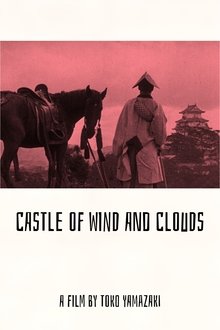Related Movies
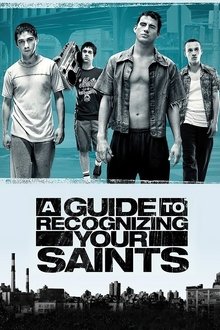
A Guide to Recognizing Your Saints (2006)
Dito Montiel, a successful author, receives a call from his long-suffering mother, asking him to return home and visit his ailing father. Dito recalls his childhood growing up in a violent neighborhood in Queens, N.Y., with friends Antonio, Giuseppe, Nerf and Mike.

What Have I Done to Deserve This? (1984)
A henpecked housewife ekes out a meager existence, surrounded by a host of colorful characters: her ungrateful husband, her delinquent sons, her headstrong mother-in-law, and her sex worker neighbor, among others.

Going Ga-Ga (1929)
Anita and Marion realize that an abandoned baby they sneaked into an orphanage was kidnapped from a millionaire. For the reward, they proceed to break into the institution at night, dressed as men to beat curfew, to get the kid out again. This film survives only in very fragmentary form.
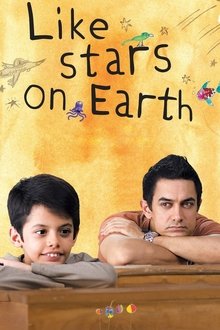
Like Stars on Earth (2007)
Ishaan Awasthi is an eight-year-old whose world is filled with wonders that no one else seems to appreciate. Colours, fish, dogs, and kites don't seem important to the adults, who are much more interested in things like homework, marks, and neatness. Ishaan cannot seem to get anything right in class; he is then sent to boarding school, where his life changes forever.

Over the Hedge (2006)
A scheming raccoon fools a mismatched family of forest creatures into helping him repay a debt of food, by invading the new suburban sprawl that popped up while they were hibernating – and learns a lesson about family himself.
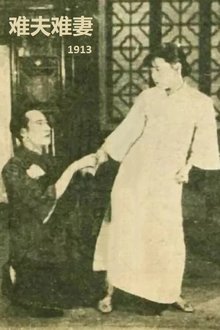
Wedding Festivities (1913)
The film tells the story of a man and woman who don't know each other. After being matched by a matchmaker, after going through a series of red tape, they were sent to the bridal chamber and began a difficult life as a couple. Despite the primitive shooting methods and lack of training of the actors, the film has a very important place in the history of Chinese film. The film has now been lost.

blank13 (2018)
Thirteen years after abandoning his wife and two sons by stepping out for a pack of cigarettes and never returning, deadbeat gambler Masato dies of stomach cancer. At his funeral, a motley crew of fellow mahjong players, pachinko parlor employees and former drinking buddies gather to pay their respects and tell stories, revealing aspects of Masato’s life that complicate his sons’ resentment towards him.

Ken Park (2003)
Ken Park focuses on several teenagers and their tormented home lives. Shawn seems to be the most conventional. Tate is brimming with psychotic rage; Claude is habitually harassed by his brutish father and coddled, rather uncomfortably, by his enormously pregnant mother. Peaches looks after her devoutly religious father, but yearns for freedom. They're all rather tight, or so they claim.
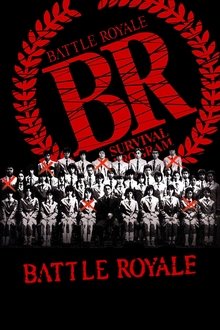
Battle Royale (2000)
In the future, the Japanese government captures a class of ninth-grade students and forces them to kill each other under the revolutionary "Battle Royale" act.

Falling Camellia (2018)
During the Edo period, a gifted swordsman was exiled from his clan when he questioned the misconduct of his leader. Years after, his dying wife wish was for him to go back to his clan.

JUDY1964 (2025)
In the 1960s, young Judy is captivated by an advertisement for toy guns. But when she discovers her parents' real firearm, the line between playful fantasy and dangerous reality blurs.

Galileo Galilei (1909)
Scientist Galileo Galilei was engaged in his studies, but a servant of his attempts to seduce his daughter, and denounces Galilei to the Holy Office.

Limite (1931)
Adrift in the vast expanse of the ocean, a solitary boat carries three castaways—a man and two women. Stranded and devoid of any glimmer of rescue, they find solace in recounting the tales of their lives to one another. As they delve into their personal narratives, reminiscing about the circumstances that led them to this desolate predicament, they navigate through the depths of three distinct destinies. Bound by the confines of their shared space, every aspect of their existence becomes a boundary, underscoring their plight.
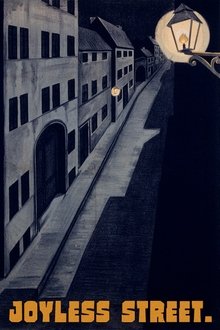
The Joyless Street (1925)
In 1921, we follow two women - Marie and Grete - from the same poor Viennese neighborhood, as they try to better the lives of themselves and their families during the period of Austrian postwar hyperinflation.
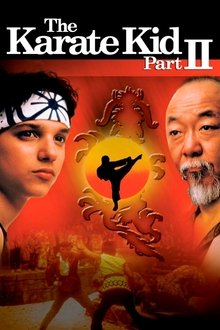
The Karate Kid Part II (1986)
Summoned by his dying father, Miyagi returns to his homeland of Okinawa, with Daniel, after a 40-year exile. There he must confront Yukie, the love of his youth, and Sato, his former best friend turned vengeful rival. Sato is bent on a fight to the death, even if it means the destruction of their village. Daniel finds his own love in Yukia's niece, Kumiko, and his own enemy in Sato's nephew, the vicious Chozen. Now, far away from the tournaments, cheering crowds and safety of home, Daniel will face his greatest challenge ever when the cost of honor is life itself.

Wood Job! (2014)
After failing his university entrance exam, Yuki Hirano sets his eyes on the role of a forestry trainee. Setting off for training he doubts his decision many times, but eventually after passing the training course, he is sent to Kamusari Village for a year of work experience - where he becomes assimilated with the beauty of nature and the warm-hearted people of the village.

A Scarred Life 2: Blood Will Tell (1972)
President of the territorial yakuza organization is being manipulated by a crooked leader in the military and some capitalists Ishikiri. The plan is to get multiple family of the organized crime groups based in Osaka to war it out and order the Shima to the Onishi group of the branch to expand the territory. Now members of the same yakuza gang are forced to fight each other over territory and honor.

